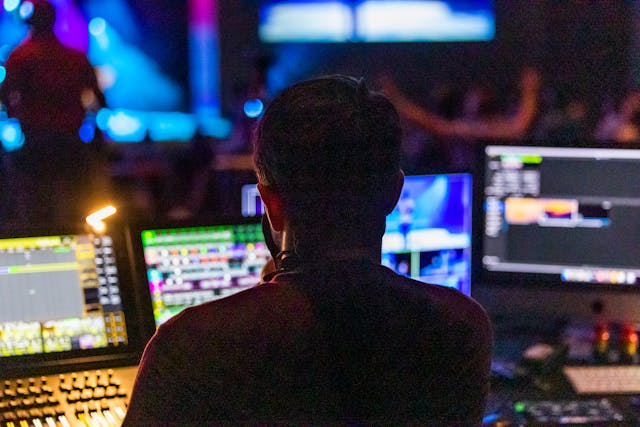Unveiling the Veil: Ghostwriting in EDM – Should Songwriters Get More Credit?
In the realm of Electronic Dance Music (EDM), the spotlight often shines brightest on the charismatic DJ-producer figures who command festival stages and dominate airwaves with infectious beats and melodies. However, behind the scenes lies a shadowy practice that has long been a point of contention: ghostwriting.

One of the primary arguments in favor of giving songwriters more credit in the EDM world is the notion of artistic integrity and transparency. Fans of electronic music are often drawn to the genre not only for its infectious beats but also for the creative expression it embodies. By acknowledging the contributions of songwriters, artists can maintain a sense of authenticity and honesty with their audience. After all, isn’t transparency a cornerstone of any genuine artistic endeavor?
Moreover, recognizing the work of songwriters can also serve to elevate the overall quality of EDM music. By shining a spotlight on the talented individuals behind the scenes, artists and producers can foster a culture of collaboration and mutual respect within the industry. This, in turn, can lead to more diverse and innovative music, as different perspectives and ideas are brought to the table.
Another compelling argument for giving songwriters more credit in EDM is the issue of fair compensation. While superstar DJs may rake in millions of dollars from touring and merchandise sales, the same cannot always be said for the behind-the-scenes songwriters who help create their hits. By acknowledging the contributions of these individuals, artists and record labels can ensure that they receive their fair share of royalties and recognition for their work. After all, should not those responsible for shaping the sound of EDM be justly rewarded for their efforts?
However, the debate over ghostwriting in EDM is not without its detractors. Some argue that the anonymity afforded by ghostwriting allows artists to maintain a sense of mystique and allure that is integral to their brand. Indeed, the enigmatic persona of the DJ-producer has become a hallmark of the EDM scene, with fans often speculating about the identities and backgrounds of their favorite artists. By lifting the veil of secrecy surrounding ghostwriting, critics argue that artists risk diluting their appeal and losing the sense of intrigue that sets them apart.
Furthermore, there are practical considerations to take into account when discussing the issue of songwriting credit in EDM. The collaborative nature of electronic music production means that attributing credit can be a complex and nuanced process. In many cases, multiple individuals may contribute to the creation of a single track, making it difficult to determine who deserves recognition and how much. Additionally, the fast-paced nature of the EDM industry means that songs are often produced and released in a matter of weeks, leaving little time for proper crediting and documentation.
Ultimately, the question of whether songwriters should get more credit in EDM is a complex and multifaceted one. While there are valid arguments to be made on both sides of the debate, one thing is clear: the contributions of these hidden talents should not be overlooked or undervalued. By acknowledging the role of songwriters in the creation process, artists and producers can uphold principles of transparency, integrity, and fair compensation within the EDM industry. Moreover, by shining a spotlight on these unsung heroes, the genre can continue to evolve and thrive, pushing the boundaries of creativity and innovation for years to come. It’s time for the ghostwriters of EDM to step out of the shadows and into the spotlight where they rightfully belong.



